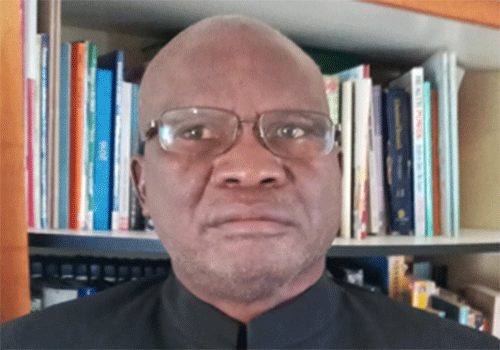Prof. Makala Lilemba
Article 21 (1) (d) of the Namibian Constitution accords all persons the right to assemble peacefully without arms. It seems this is what some constituencies in the Zambezi region are following when they demonstrated against secession and the governor.
As legally as the demonstrations are, they are misdirected, and they miss their purpose and point in time. Indeed, if there is any genuine seriousness about the demonstration on secession, it could have been staged on 2 August. Even then, twenty-four years have elapsed after that fateful and sorrowful day when innocent blood was shed. The secession still reminds us of the painful events that unfolded that day. The majority of those who were involved and imprisoned for the alleged numerous crimes, after being languished in prison for decades, have so far been released and systematically silenced through fear. Fear has the biggest impact on the lives of people, and silencing them sends a wave of apprehension, which might lead to total submission and inhibit the sense of creativity. In 1968, the people of Kongola to Singalamwe fled the country en masse for fear of reprisals from the security forces, and found themselves in a foreign country against their will.
Quoting Franklin Roosevelt, the thirty-second United States of America president, Montefiore (2007), maintains that the only thing to fear is fear itself.
To allay their fears, and the fact that many of them were found not guilty, the state has refused to compensate them for incarcerating them illegally.
During their detention, the majority of detainees were subjected to torture, cruel and inhuman or degrading treatment or punishment contravening Article 8 (2) (b) of the Namibian Constitution. This can be witnessed by indelible scars left on their bodies. Whatever happened, maybe the victims can console themselves that in any military confrontation, casualties cannot be avoided. If the demonstrations are targeting such incidents, it is difficult to understand their relevance because the alleged secessionists are currently toothless and have been incorporated into their communities. The majority are leading the so-called normal lives – and in the process, licking their wounds incurred during their length period of incarceration. The Duke Group has long back returned to Namibia, and the majority of the inmates are free. Those who were still able to work joined the labour force. So, the story of seceding the Zambezi region from Namibia is practically gone and will soon be forgotten.
With luck, it could only remain in History books as a wishful thinking. But even then, with the censorship of literature and subject content to be taught in schools, it may not appear in books either. The oral aspect of such history could remain as the story of the lion and hare.
This will be similar to the fairy tale of the Luyana kingdom, which incorporated the region around 1740, the part of the history that is completely forgotten and some people in the Zambezi are rubbishing it as if it has never happened. That is the painful irony of African history – that it can be tossed around and distorted until falsehood sounds as the truth. But in some cases, even if information is documented, the ruling elite will simply ignore that if the document threatens their interests. That is where the West and East will always beat Africa literally-wise because their existence is documented and stored in archives and libraries. Going to the demonstrations, maybe there are rumours of secessionist attack, as it has been the case in the past, in which the army would be deployed to the region – and during the operations, they could not find anything tangible. Whatever triggered the demonstrations, only the main organisers should know and explain to the nation the rationale thereof. Since we live in a crazy world, as Lucky Dube once sang, it can be treated as business as usual. One would have thought the region should have demonstrated against the senior officers of the Regional Council, who embezzled about N$4 million that was intended for projects. This is where the demonstrations are misdirected by diverting the genuine concerns of the people to somewhere else, which is of insignificance. In addition to the embezzlement of the money, there are thousands of young people roaming the streets without jobs, of which the demonstrations could have made sense.
There are also many issues to demonstrate against in this country, such as the high level of corruption, the crime rate, gender-based-violence and even lack of basic services in many parts of the country, despite the availability of resources. The Namibian newspaper of 3 November 2023 exposed a ramshackle classroom in which the teacher lost books and assessment marks eaten by cows. The situation in Zambezi is no better in terms of lack of better classroom facilities, as some learners are still taught under trees. The promises made by political leadership to abolish the situation where children are taught under trees are just illusions. Vision 2030 is at the corner, and the Harambee Prosperity Plan is in operation, but the standard of living of the majority of people in the Zambezi is worsening on a daily basis. Going back to the governor as a target of the demonstrators equally does not make sense, as he is a tested Swapo cadre, despite Angula (2018) mentioning him as a former dungeon security officer. It is time the region reverts to issues that unite them and focus on developmental projects.
* Prof. Makala Lilemba is an
academician, author, diplomat, motivational leader, researcher and scholar.


